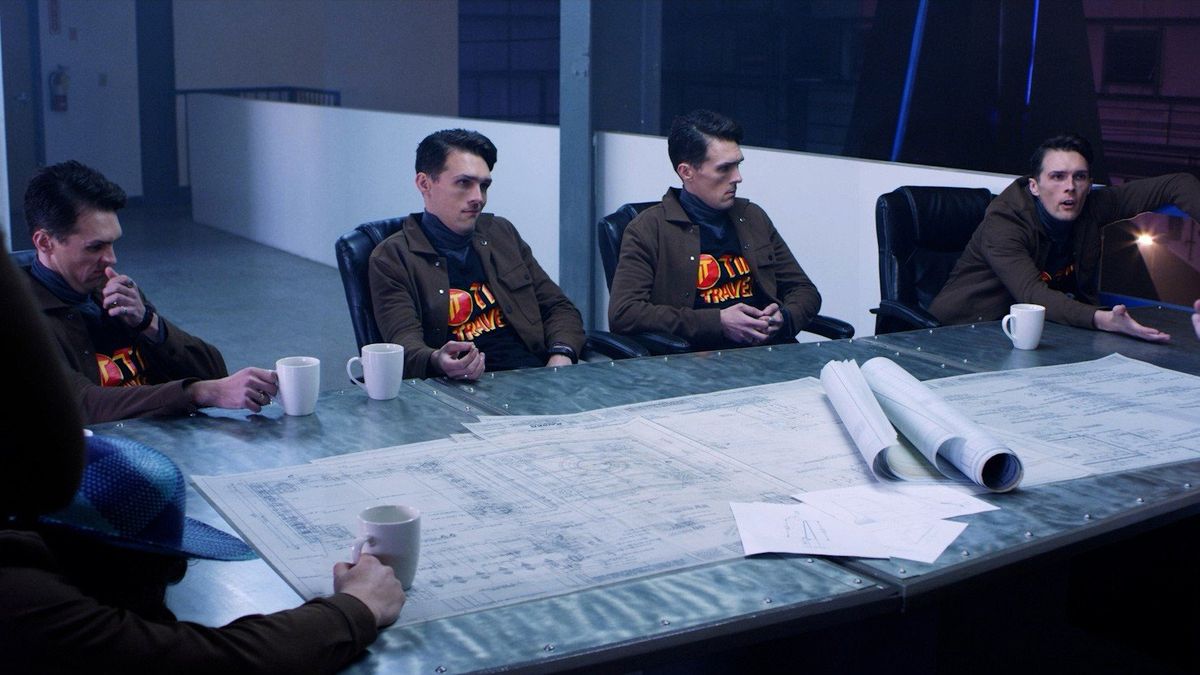With the return of SpIFF, it feels like the local film world is healing
Joanna Quinn’s “Affairs of the Art.”
After a year away from local theaters, I felt overjoyed to see the return of the Spokane International Film Festival and enjoyed the many flavors of cinema both foreign and local. My only regret is that I have to write this article on a Monday, and there are still so many films and shorts I want to watch and talk about before the festival ends.
But the good news about SpIFF is that everyone can still watch these great films any time they want. From now until midnight Tuesday, you can go to watch.eventive.org/spiff and buy a virtual ticket for $15. It will give you access to every feature film or short in this year’s festival that you can stream on your computer or smart device.
The first SpIFF event was at the Bing Crosby Theater on Friday night showcasing the Best of the Northwest shorts. The theater was filled with eager young filmmakers, artists and enthusiasts who were excited to see what local filmmakers had to offer.
There were many standouts, including Jennifer Wolfe’s haunting, yet enlightening “You Will See Me” and Scott Ballard’s “Western Exit” about a father’s last attempt to bring together his three estranged daughters.
My favorite was the goofy and contemplative sci-fi tale from Stimson Snead, “Tim Travers and the Time Traveler’s Paradox.” Its titular character, a mad scientist version of Doctor Who, invents a time machine with the sole purpose of figuring out a hypothetical paradox – what would happen if you traveled back in time and killed your younger self? It never takes itself too seriously even with its theoretical science.
Another standout was Chase Ogden’s “Jumping Into Fire.” The short chronicles the only all African-American paratrooper unit in U.S. history with an astonishing level of detail. It interviews one of its last members, 2nd Lt. Walter Morris, and it hits as hard as any war documentary or feature film.
Following the Best of the Northwest shorts was a showing of Jim and Laura Wing-Kamoosi’s “Reclaim Idaho,” a documentary following a married couple going around North Idaho in their busted RV to campaign for Medicaid expansion that would save more than 62,000 Idahoans. It is a heartwarming tale that shows the kindness and passion in ordinary people, especially as they try desperately to make a difference.
The second day of the festival had much to offer, including the animated shorts. All of them were charming, bizarre or mind-blowing in one way or another. My favorite was Lachlan Pendragon’s “An Ostrich Told Me the World Is Fake, and I Think I Believe It.” With stop-motion animation similar to “Coraline,” this brilliantly designed short sees its puppet of a main character slowly realize that he’s just a puppet in the film we’re watching.
The other standout is Joanna Quinn’s “Affairs of the Art.” The short details the obsessive lifestyle of Beryl, a middle-aged woman trying to express herself through her bizarre art, as well as the strange habits of the other people in her life. After what we all went through during the pandemic, I think we can all see a little of Beryl in ourselves.
Speaking of the pandemic, the follow-up to the animated shorts was Chris Guerra and Matthew John Koppin’s “Re-Opening,” and it was my festival favorite. The film is a mockumentary, in the same style as “This Is Spinal Tap!” and “Best in Show,” as it shows a driven yet bumbling theater group desperately trying to open their local theater in the middle of the pandemic. It was funnier than any film I’ve seen in a while, and it is the comedy we need right now.
After this was the World Shorts, with many that I’m still thinking about. Norway’s “Kicksled Choir” was surprisingly touching and had a great father-son dynamic. The United Kingdom’s “Rat” felt like a condensed version of a Hitchcock thriller, while “Just in Case” was one of the best film depictions I’ve seen about living with bipolar disorder.
Once I finished the in-person events, I checked out a few films virtually. The standout was Simone Rapisarda Casanova and Dara Culhane’s “In the Garden of Forking Paths.” One of the most unique film experiences I’ve ever seen, the film is a series of vignettes as Indigenous kids take an omni-directional camera through the Canadian wilderness and talk about anything that comes to their mind.
It’s a contemplative journey that lets me see the world through the eyes of a kid again. All of these films and so much more are still available on SpIFF’s virtual screenings through Tuesday, and I highly recommend getting a virtual ticket while you can.



